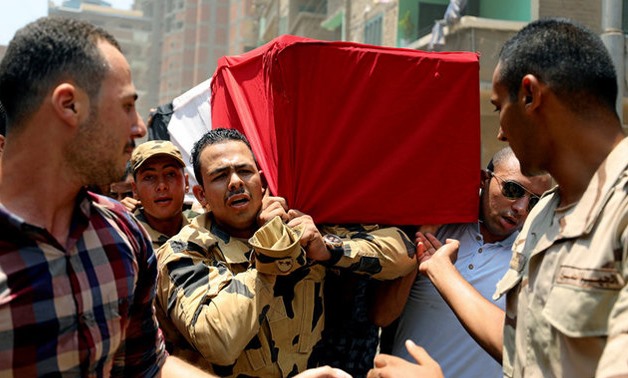
Egypt imposed a new law on Thursday which mandates students, concert goers, and foreigners to pay LE5 in the form of donations, grants and fines imposed on 14 different services; money that Egypt’s government will reroute in the form of cash or direct benefits to the families of “those killed, injured or reported missing as a result of a military, terrorist or security operation,” the new law published in the official Gazette said.
According to the law, beneficiaries will receive education scholarships, given priority in state and private sector employment, and medical insurance for treatment in police and armed forces hospitals.
“The fund will grant beneficiaries a 50 percent discount on public transport and will have the chance to perform pilgrimage as well as free admission into parks, theatres and residential units in state housing projects.”
According to Article 7 of the law, the LE5 will be imposed on 14 services, including weapon permits, driving licenses, security clearance requests, ticket sales from sports games, concert tickets, sports club memberships, residency permits for non-Egyptians, as well as applications for military and police academies. The law also stipulates a “solidarity contribution” of LE5 on students from primary to secondary stages, and LE10 on university students in aims to raise awareness about “the fight against terrorism” among the younger generation.
The fund is independent of the state budget and will be regulated by the Central Auditing Authority and be exempt from taxes, which implies that donations paid towards the fund will be considered tax credit.
The law also put in place a medal dubbed as “Long, Live Egypt” to honor military and police personnel as well as civilians who “displayed acts of bravery and sacrifice in the face of terrorist operations.” According to the official gazette, winners will be entitled to a monthly reward of LE2,000.
Egypt has been battling an Islamic State-led insurgency in the Sinai Peninsula that has killed hundreds of soldiers and police officers since 2013, but has in recent months extended to other parts of the country.




